
-
Find the right food for your petTake this quiz to see which food may be the best for your furry friend.Find the right food for your petTake this quiz to see which food may be the best for your furry friend.Featured products
 Adult Wet Dog Food with Beef
Adult Wet Dog Food with BeefHill's Science Plan Adult Multipack Wet Dog Food with Chicken, Beef & Turkey are complete premium pet foods for adult dogs from 1 year. Your dog will love these deliciously smooth and savoury minced loaves, formulated for balanced nutrition and overall health.
Shop Now Mature Adult Dog Food
Mature Adult Dog FoodHill's Science Plan Mature Adult Multipack Wet Dog Food with Chicken & Beef are complete premium pet foods for mature adult dogs from 7 years. Your dog will love these deliciously smooth and savoury minced loaves, formulated to deliver the appropriate amount of energy to support the needs of adult dogs.
Shop Now Puppy Food
Puppy FoodHill's Science Plan Puppy Multipack Wet Dog Food with Chicken & Beef are complete premium pet foods for growing puppies from weaning until 1 year old and for pregnant and nursing dogs. Your puppy will love these deliciously smooth and savoury minced loaves, formulated for balanced nutrition and overall health.
Shop NowFeatured products Mature Adult Wet Cat Food with Chicken
Mature Adult Wet Cat Food with Chicken
Tender chicken chunks in gravy for mature adult cats. Made with easy-to-digest ingredients, high-quality protein for lean muscle maintenance and antioxidant vitamins C+E for optimal health.
Shop Now Adult Multipack Wet Cat Food with Beef, Ocean Fish & Chicken
Adult Multipack Wet Cat Food with Beef, Ocean Fish & ChickenTender chunks in gravy for cats, with high-quality protein to maintain lean muscle. With vitamin E and omega-3s & -6s for healthy skin and balanced minerals to support healthy vital organs.
Shop Now Light Adult Multipack Wet Cat Food with Chicken & Ocean Fish
Light Adult Multipack Wet Cat Food with Chicken & Ocean FishTender chicken chunks in gravy for cats, with L-carnitine and fewer calories for ideal weight management. Packed with high-quality protein, omega-6s, and vitamin E for shiny fur and healthy skin.
Shop Now -
Dog
- Dog Tips & Articles
-
Health Category
- Weight
- Food & Environmental Sensitivities
- Urinary
- Digestive
- Joint
- Kidney
-
Life Stage
- Puppy Nutrition
- Adult Nutrition
- Senior Nutrition
Cat- Cat Tips & Articles
-
Health Category
- Weight
- Skin & Food Sensitivities
- Urinary
- Digestive
- Kidney
-
Life Stage
- Kitten Nutrition
- Adult Nutrition
Featured articles Show some love with wet foods: a great choice for pets with health issues
Show some love with wet foods: a great choice for pets with health issuesShow some love with wet foods: a great choice for pets with health issues.
Read More The Incredible Science Behind Your Pet's Microbiome
The Incredible Science Behind Your Pet's MicrobiomeLearn what your pet's microbiome is, how it contributes to your pet's gut and overall health, and why nutrition is important in maintaining healthy microbiomes.
Read More The Right Diet For Your Pet
The Right Diet For Your PetIn people, the right diet is very important. If you are eating the wrong way for your metabolism, activity level, age and lifestyle you could end up with health issues.
Read More -


With Halloween just around the corner, your family is probably looking forward to the treats more than the tricks. Those colourful, sugary delights can also be a temptation to your feline family members, but cats and sweets can be a dangerous combination. For your cat’s safety, it's important to keep your kitty away from the sweets stash.
Dangerous Foods for Cats
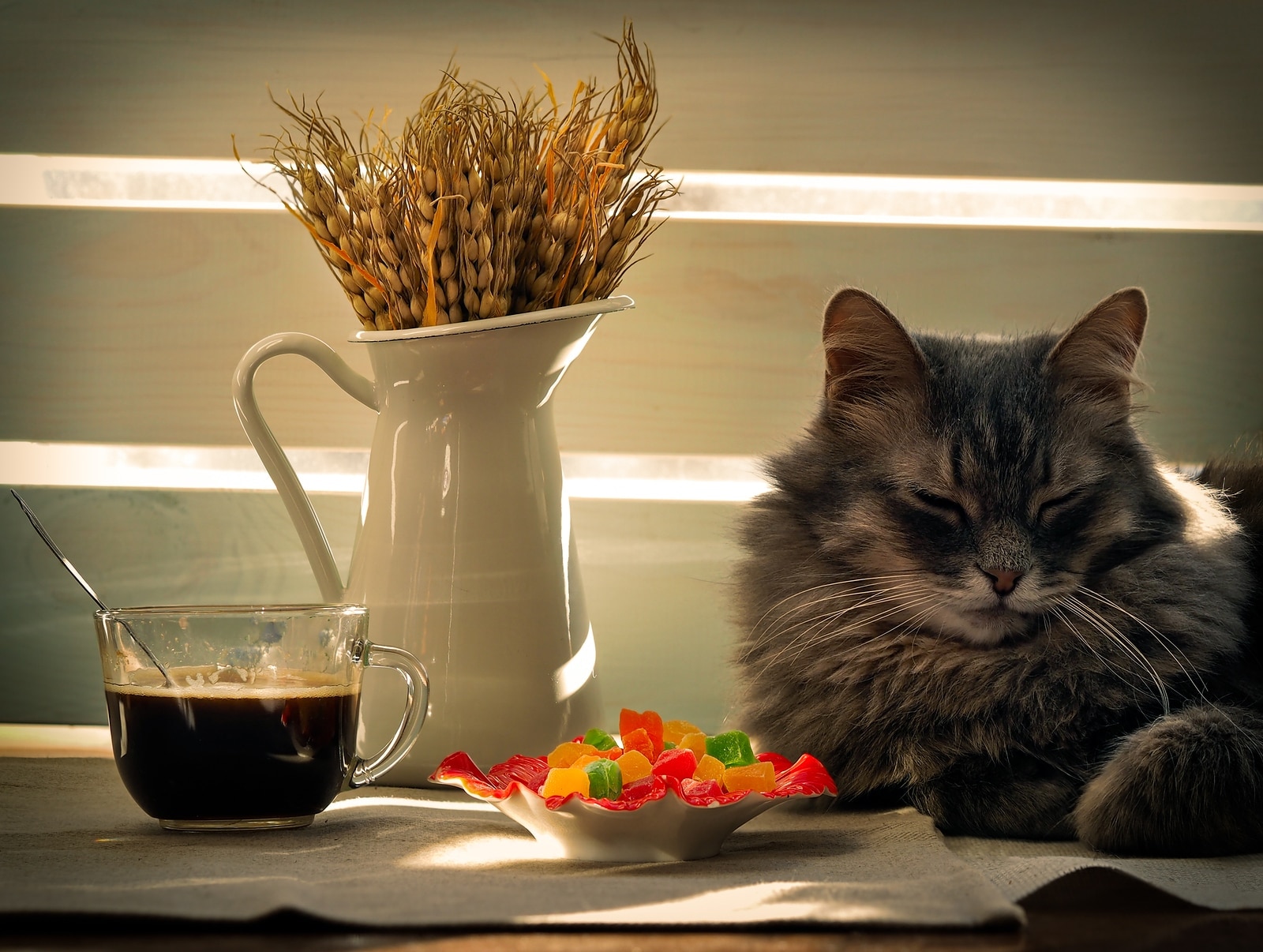 Some ingredients found in Halloween sweets and other treats can cause an upset stomach, while others can be downright toxic and dangerous to ingest. PetMD warns that it's especially important to keep your kitty away from these treats:
Some ingredients found in Halloween sweets and other treats can cause an upset stomach, while others can be downright toxic and dangerous to ingest. PetMD warns that it's especially important to keep your kitty away from these treats:
Chocolate
Chocolate contains the compound theobromine, which can cause serious reactions in cats that include heart arrhythmia, muscle tremors, and seizures. Cats should also be kept away from caffeine, another ingredient found in chocolate that can also induce muscle tremors, as well as heart palpitations and restlessness.
Dairy-Based Treats
Cats are lactose intolerant, so while ingesting sweets that contain dairy isn't likely to be lethal, it could cause an upset stomach, resulting in vomiting and diarrhoea.
Xylitol
This sweetener is used as a sugar substitute in many sugar-free sweets and chewing gums. In dogs, this ingredient is known to raise insulin levels and cause a severe drop in blood sugar and can lead to liver failure. While there has never been an official case of this occurring with cats, it's better to be safe than sorry and keep your cat away from sugar-free treats.
Raisins
There's always that one house that hands out boxes of raisins. What's meant to be a healthier treat for your kids could be deadly to your pets. Raisins, along with grapes, are known to cause kidney failure in dogs. Again, while there's never been a known case of this happening with cats–possibly because cats are pickier eaters than dogs–it's best to err on the side of caution and keep them away from your cat at all costs.


Tasty Tips
Choking Hazards
Toxicity isn't the only danger that comes from mixing cats and sweets. Your cat is actually less likely to be tempted by the sweet itself than she is by colourful, crinkly wrappers, which can be a choking hazard, warn Cat Behavior Associates. If your cat manages to ingest a wrapper without choking on it, it could cause an intestinal blockage. Paper sticks left over from lollipops and hard sweets could also become choking hazards. So to keep your kitty safe, it's best to keep all types of sweets shut up in a safe place where a cat can't get to it, as well as discarding wrappers properly.
If Your Cat Ingests Sweets or Chocolates
PetMD recommends taking the following actions if you think your cat might have eaten some:
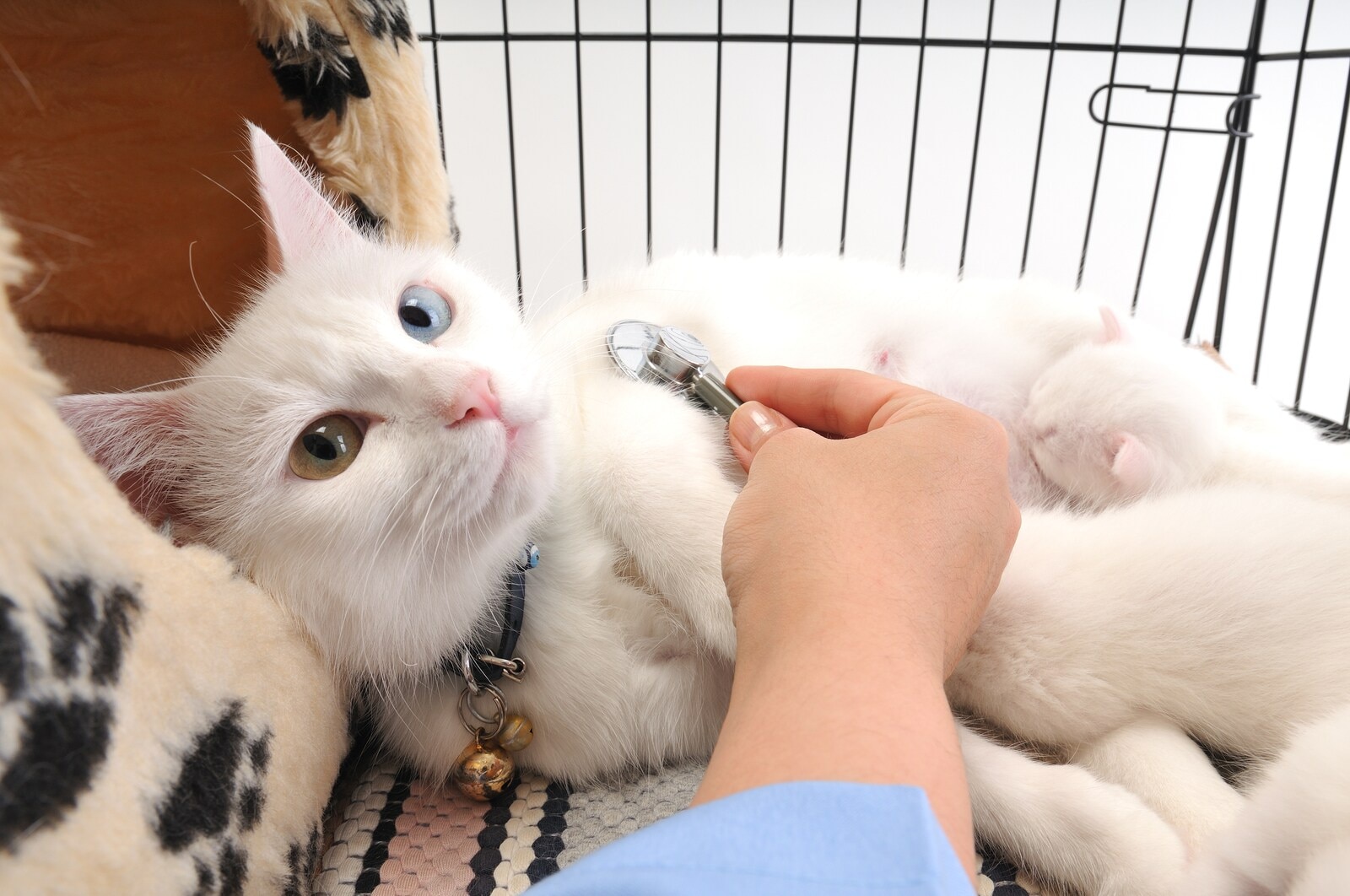 If possible, determine what has been eaten and how much
If possible, determine what has been eaten and how muchCall your veterinarian, who can advise you whether you should observe your cat for symptoms, induce vomiting to clear the stomach, or bring in for treatment.
- If you can't reach your vet, call the nearest emergency vet or animal hospital instead.
If you have small children in the house, it is a good idea to manage their sweet intake (for multiple reasons), so that you can ensure they aren't tempted to share their tasty sweets with the cat, or leave any wrappers lying around. If you're worried that your cat will feel left out on Halloween, have some favourite cat treats or kibbles on hand to distract from the Halloween treats.


Jean Marie Bauhaus is a pet parent, pet blogger, and novelist from Tulsa, Oklahoma, where she usually writes under the supervision of a lapful of fur babies.
Related products

Tender chicken chunks in gravy for mature adult cats. Made with easy-to-digest ingredients, high-quality protein for lean muscle maintenance and antioxidant vitamins C+E for optimal health.
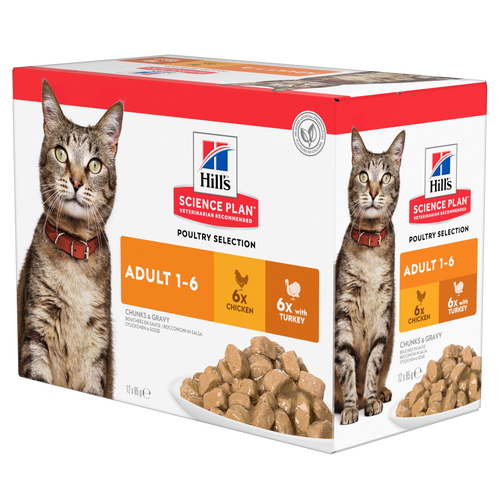

Tender chicken chunks in gravy for cats, with L-carnitine and fewer calories for ideal weight management. Packed with high-quality protein, omega-6s, and vitamin E for shiny fur and healthy skin.

Tender chunks in gravy for cats, with high-quality protein to maintain lean muscle. With vitamin E and omega-3s & -6s for healthy skin and balanced minerals to support healthy vital organs.
Related articles
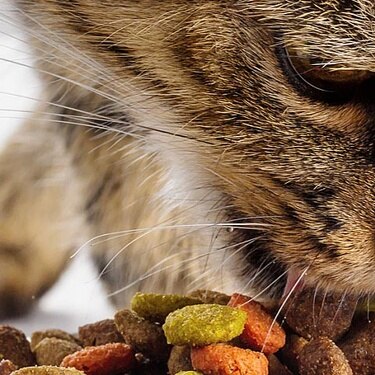
From essential vitamins & minerals to different types of meat, learn what to look for when choosing the best cat food for your feline.
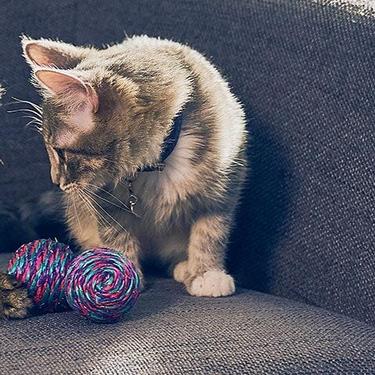
Kittens grow a lot in their first year, so it is important to provide them with the proper nutrients early, so they grow up healthy and strong. Learn more.

There are three common ways to feed a cat. Each way has its advantages and disadvantages.
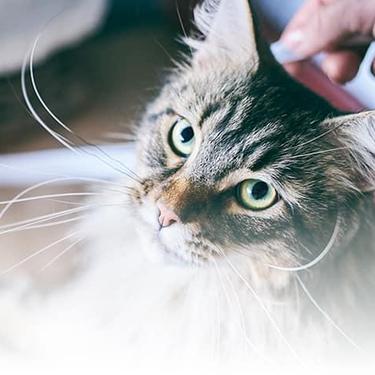
Learn how to make homemade cat treats that are healthy for your pet with this recipe from Hills Pet Nutrition.

Put your cat on a diet without them knowing
Our low calorie formula helps you control your cat's weight. It's packed with high-quality protein for building lean muscles, and made with purposeful ingredients for a flavourful, nutritious meal. Clinically proven antioxidants, Vitamin C+E, help promote a healthy immune system.
Put your cat on a diet without them knowing
Our low calorie formula helps you control your cat's weight. It's packed with high-quality protein for building lean muscles, and made with purposeful ingredients for a flavourful, nutritious meal. Clinically proven antioxidants, Vitamin C+E, help promote a healthy immune system.

